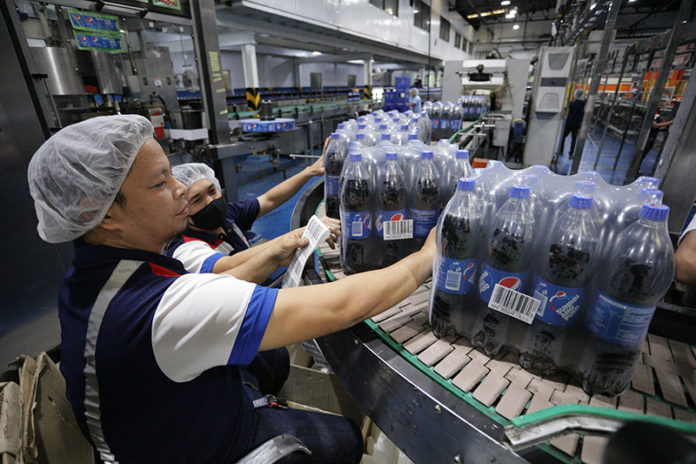
-
President Ferdinand Marcos, Jr says Philippine food manufacturers may be allowed to import sugar directly as part of emergency measures to resolve sugar shortage
-
The shortage is due to two crop years in a row that the domestic sugar industry expected is expected to fall short of its production targets
-
An unauthorized attempt by the Sugar Regulatory Administration to import additional 300,000 tons this year has led to the resignations of Agriculture Undersecretary Leocadio Sebastian and the head and a board member of the Sugar Regulatory Administration
The Philippines is considering direct sugar importation by food makers as part of government emergency measures to address industry worries about shortage of the commodity, President Ferdinand Marcos Jr. said on August 15.
Marcos made the statement in a meeting with food manufacturers in Malacañang, just days after the presidential palace declared as “illegal” Sugar Order No. 4 calling for the importation of 300,000 metric tons of sugar as it was signed without the authority of the President, who is also chairman of the Sugar Regulatory Board.
The controversial signing led to the resignations of Agriculture Undersecretary Leocadio Sebastian, Sugar Regulatory Administration head Hermenegildo Serafica and SRA board member Roland Beltran last weekend amid a Palace investigation of the scandal.
As of July 31, the country’s actual raw sugar production was 1,792,102 metric tons, down 16.18% year on year, and actual refined sugar output was 737,254, down 2.84% y-o-y, according to the voided SO4. It was these concerns that the food manufacturers brought up with Marcos.
“Another area that has to be looked into, the President said, is direct importation by food manufacturers, with the approval of the Sugar Regulatory Administration (SRA), as part of emergency measures to address current industry concerns,” read a statement released Tuesday by the Presidential News Desk.
Marcos said that while there is a need for the Philippines to increase sugar production, the current pressing concerns of food producers must be addressed, according to the statement.
The statement said industry players who were at the meeting urged the government to act now if it is considering importation for industrial use, as global suppliers may allocate their produce to other markets.
Marcos said the sugar supply problem “has become a worrisome problem. We are doing all of these things to protect the jobs of workers in those industries. So we are studying several measures that we can take to immediately increase the supply of sugar in the country.”
He said his administration is also talking to traders to reduce the price of sugar. “Hopefully, we can get some concessions [from] the traders so that at least the pricing will be reasonable. The concern is the supply right now. I’ll make sure that there is sufficient supply in the country so that you can operate at full capacity,” Marcos said.
In a Facebook post, Marcos said his administration would work out a system to increase the supply of sugar that would ensure a smooth flow of business and secure jobs in the country’s fast-moving consumer goods (FMCG) industry.
Three large beverage companies, Coca-Cola Beverage Philippines Inc. Pepsi-Cola Products Philippines Inc. and ARC Refreshments Corp., confirmed in a joint statement on August 15 a shortage of bottler’s grade or premium refined sugar.
“We confirm our industry is facing a shortage of premium refined sugar – a key ingredient in many of our products. We are working closely with other stakeholders of the industry and the government to address the situation,” the group said.
In February, the SRA approved Sugar Order No. 3, which allowed the importation of 200,000 metric tons of refined sugar by industrial users. The consisted of 100,000 MT of standard grade refined sugar and 100,000 MT of bottler’s grade refined sugar.
SO3, however, was held up by temporary restraining orders issued by two regional trial courts in Negros Occidental in response to petitions by some sugar groups opposed to the import plan.
The country’s raw sugar balance by the end of August would be negative 35,231 MT, lower than the 228,690 MT in the last crop year, government data showed. Refined sugar balance is forecast to drop to negative 20,748.65 MT, from 195,000 MT in the previous crop year.
Marcos last Sunday said the government might an import additional 150,000 metric tons of sugar in October in anticipation of insufficient supply by then. He said the government would not import more than the country’s demand but just to prevent prices from soaring when supply is low.
The Foreign Agricultural Service of the US Department of Agriculture forecasts that Philippine sugar output in marketing year 2023 will decline by 50,000 MT to 2 million MT, as high fertilizer prices lead to reduced yields.
This, and a production shortfall forecast for MY2022, would prevent the country from fulfilling its US sugar export quota next marketing year, FAS said.
FAS also lowered its production forecast for MY 2022 to reflect the damage caused by Typhoon Odette to Philippine sugar farms in December 2021. It said the lower sugar output led the Philippines to allocate 100% of its output to the domestic market in MY 2022.
Meanwhile, FAS forecasts that MY 2023 consumption will stay flat at 2.3 million MT, with more imports expected to help ensure sufficient sugar supply.




